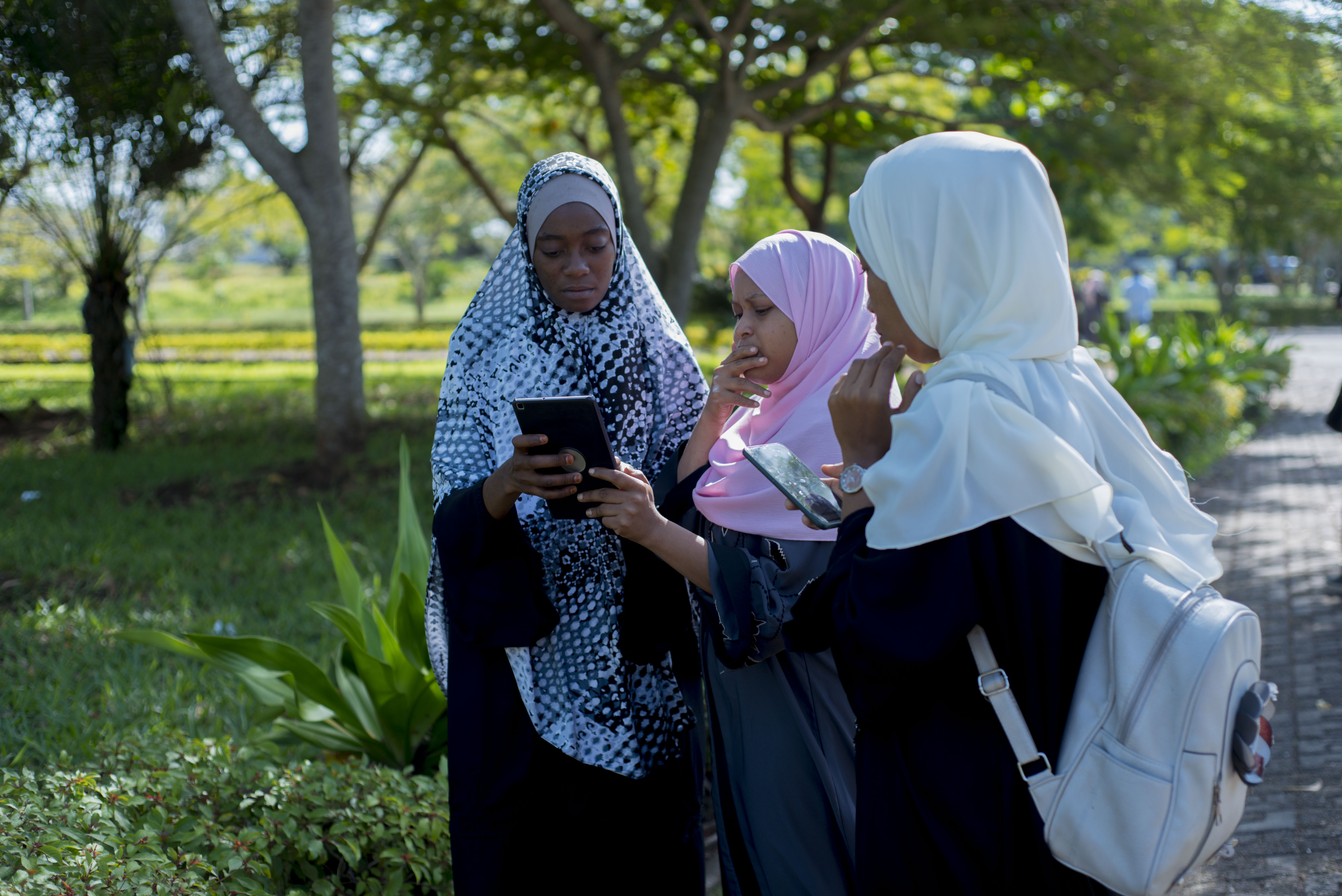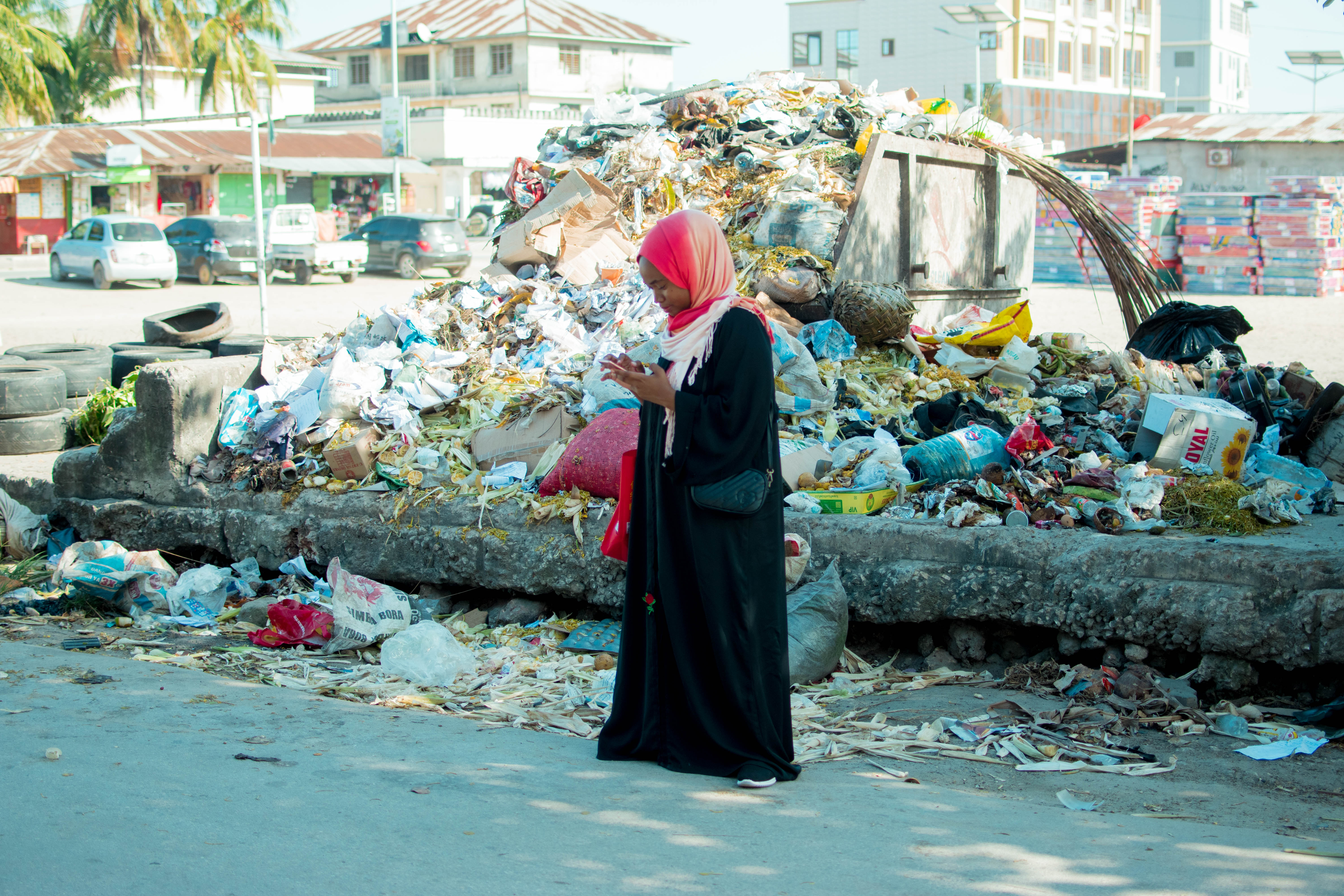Volunteer youth mappers from the State University of Zanzibar (SUZA) testing a mobile survey tool preparing for crowd mapping of Solid waste infrastructures in Zanzibar. Photo: UNDP Tanzania
I dream of our vast deserts, of our forests, of all our great wildernesses. We must never forget that it is our duty to protect this environment - Nelson Rolihlahla Mandela, President of South Africa (1994-1999)
Earlier this year, UNDP's Administrator, Achim Steiner announced that the joint proposal of UNDP and UNICEF Tanzania had won the Green Shark Innovation compettion, which was fantastic news for UNDP and UNICEF Tanzania. The competition was designed to spark creative thinking in youth and green recovery spaces. One of the innovative submissions was the WasteX Lab. The initiative includes an innovative strategy that uses a Centre of Excellence model to help expand solid waste management businesses that benefit underprivileged young women and youth. The project is being carried out on the Zanzibar islands of Unguja and Pemba. The funds will be used to encourage local stakeholders, particularly youth, to take part in a circular economy approach to trash management in collaboration with local municipalities, universities, government agencies, and the private sector.
What is the issue? According to recent estimates, Africa generated 125 million tonnes of municipal solid waste (MSW) in 2012, with Sub-Saharan Africa accounting for 81 million tonnes of that total (65 percent ). This is expected to rise to 244 million tonnes per year by 2025. With an average waste collection rate of only 55% (68 million tonnes), nearly half of Africa's MSW is dumped on sidewalks, open fields, stormwater drains, and rivers. In Sub-Saharan Africa, the average MSW collection rate is only 44 percent, with coverage varying greatly between cities, ranging from less than 20 percent to well above 90 percent. The continent's average MSW collection rate is expected to rise by only 69 percent by 2025.
Zanzibar is not an outlier in this regard. According to recent data, the main island of Unguja generates 663 tons of municipal solid waste per day. The Urban Municipal Council, West A and B municipal councils generate 216 tons of waste per day, accounting for half of the total waste on the island. However, only 120 tons are collected and disposed of. Massive amounts of uncollected garbage are dumped into the natural environment, endangering natural resources, harming the tourism industry, and providing an ideal breeding ground for flies and rats, which are carriers of a variety of diseases, including cholera, in slum areas in particular. Dumping solid waste clogs storm drains, causes urban flooding, and encourages garbage littering.
The good news is that nearly 80-90 percent of municipal solid waste in Sub-Saharan Africa is recyclable.
A student -volunteer using mobile survey technique to collect data related to solid waste infrastructures in Zanzibar. The novel data will aid ‘WasteX Lab’ beneficiaries to design mechanisms for waste collection in recycling and upcycling activities.
In response to these unfavorable circumstances, we created the WasteX lab (our initiative), which recognizes the inherent value of trash in the production of goods through recycling and upcycling. The assumption is that waste can be effectively managed and minimized by supporting innovative enterprises with a transactional model led by youth and young women.
WasteX leverages a center of excellence (COE), a shared facility focusing on circular economy technologies, to provide leadership, best practices, research, support, and training. In this case, UNDP, UNICEF, and their local partners are collaborating with a select group of enterprises, primarily youth and women, chosen through an innovation challenge to design and implement solutions to systemic challenges related to solid waste management in Zanzibar. Furthermore, the program will employ Human-Centered Design, Behavioral Science, and digital technologies to build a platform for peer-to-peer leadership, best practice sharing, experimentation, and business development.
Furthermore, it will employ novel Social Behavior Change Communication (SBCC) strategies, including community education on waste management best practices. The behavioral component will be distributed to the community directly through appropriate channels, as well as through selected entrepreneurs who will act as community education ambassadors. In addition, an innovation challenge approach will be used to solicit existing solid waste innovation ecosystem solutions, which will serve as a catalyst for future innovation and scalability.
This initiative is a direct response to Zanzibar's President's call to turn the islands into a blue economy powerhouse by 2050. It will design and deploy solutions to address systemic challenges related to solid waste management in Zanzibar, in line with the government's priority of institutional capacity building for waste management and combating land-based sources of marine pollution, marine litter, and microplastics.
We invite all waste management stakeholders to join this movement as we assist Zanzibar's youth and young women in designing and deploying solutions to achieve zero waste status in Zanzibar and, ultimately, contribute to the accelerated achievement of Agenda 2030.
Written by: Peter Nyanda, Team Lead and Head of Exploration, UNDP Accelerator Lab Tanzania

 Locations
Locations




